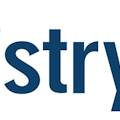ADEA MDFD Award to fund four dental hygiene academic community partnerships
May 17, 2013
2 min read
The W. K. Kellogg Foundation has awarded a $400,000 grant to the American Dental Education Association Minority Dental Faculty Development (ADEA MDFD) program to enhance the formation of academic and community partnerships for dental health professionals, and ultimately reduce oral health disparities for vulnerable children and communities. The new grant follows W.K. Kellogg Foundation’s $200,000 grant to expand the program’s critical efforts to improve diversity among populations of dental students and faculty in 2012, and a $2.4 million grant to initially fund the ADEA MDFD program from 2004 to 2010. “We are grateful to the W.K. Kellogg Foundation for the many years of support of this program,” says Jeanne C. Sinkford, DDS, PhD, ADEA Senior Scholar-in-Residence. “To date, ADEA MDFD has already created a partnership network of 12 universities and their communities with the goal of increasing diversity in all students and while developing leadership in new dental faculty.” With the funding, ADEA MDFD plans to extend support, over the next two years, to four additional institutions with dental hygiene programs to partner with pilot schools in their communities. During the second phase of the program, dental hygiene programs at the University of Detroit Mercy and Howard University were added. The partnerships will promote best practices in community outreach, leadership development, lessons learned in academic mentorships, and underrepresented minority student recruitment. The association said the third phase would continue efforts to eventually have six dental hygiene programs after the grant concludes in two years "building networks and involving a variety of outreach programs."RELATED |Professionalism among dental hygiene educators “Not only will these new partnerships add quality to the academic programs while enhancing the health and well-being of their community partners,” comments ADEA Executive Director, Richard W. Valachovic, DMD, MPH, “but the inclusion of dental hygiene programs will produce a cadre of individuals for allied dental program leadership.”RELATED |Introducing online career enhancement programs for dental professionals The ADEA MDFD program’s mission grows from surrounding research showing that minority patients are more likely to seek care from minority dentists, and similarly, that practitioners from underserved areas often return to those areas to practice. Those findings inspired Growing Our Own: The ADEA Minority Faculty Development Program: A Manual for Institutional Leadership in Diversity, a 126-page publication identifying best practices to recruit and retain underrepresented minority faculty.
About the Author
Sign up for our eNewsletters
Get the latest news and updates

